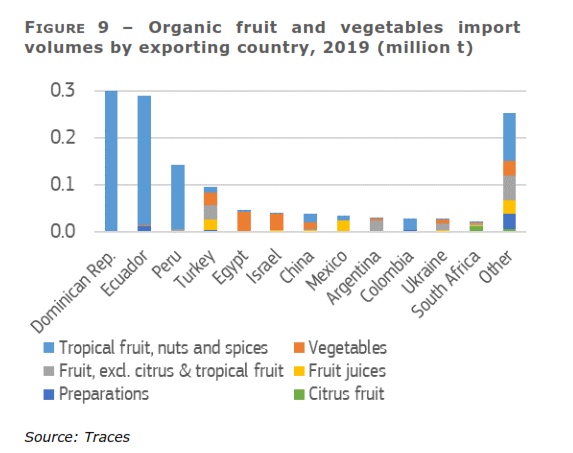EU records 8% rise in imports of organic fruits and vegetables
The EU’s organic agri-food imports remained stable in 2019 at 3.24 million tons, despite sustained internal growth. According to a report published by the European Commission, a drop in imports of organic cereals was offset by rising imports of tropical fruit, oilcakes, soyabeans and sugar. Colombia and Kazakhstan are the new arrivals on the scene and have become major suppliers of organic products to the EU. The main importing EU Member States in 2019 were the Netherlands, the UK and Germany. Fruit and vegetables constitutes the second largest group of imported organic products, with 1.35 million tons arriving in 2019 (42% of total organic imports).
Tropical fruit, nuts and spices (66 %) account for the largest share, with bananas making up 85% of total organic tropical fruit imports. Imports of organic fruit and vegetables increased by 8% in 2019, with tropical fruit, nuts and spices up 13%, reaching almost 0.9 million tons. Organic tropical fruit, nuts and spices are imported mainly from the Dominican Republic (34%, 0.3 million tons), Ecuador (31%) and Peru (15%). Almost half of the imported organic citrus fruit is shipped from South Africa (46%), while other main suppliers of organic fruits are Turkey (25%) and Argentina (17%). About half of organic fruit juices imports come from Turkey and Mexico (both 25%). Middle Eastern countries are the main origin of organic vegetables, including Egypt (26%), Israel (22%) and Turkey (17%).



